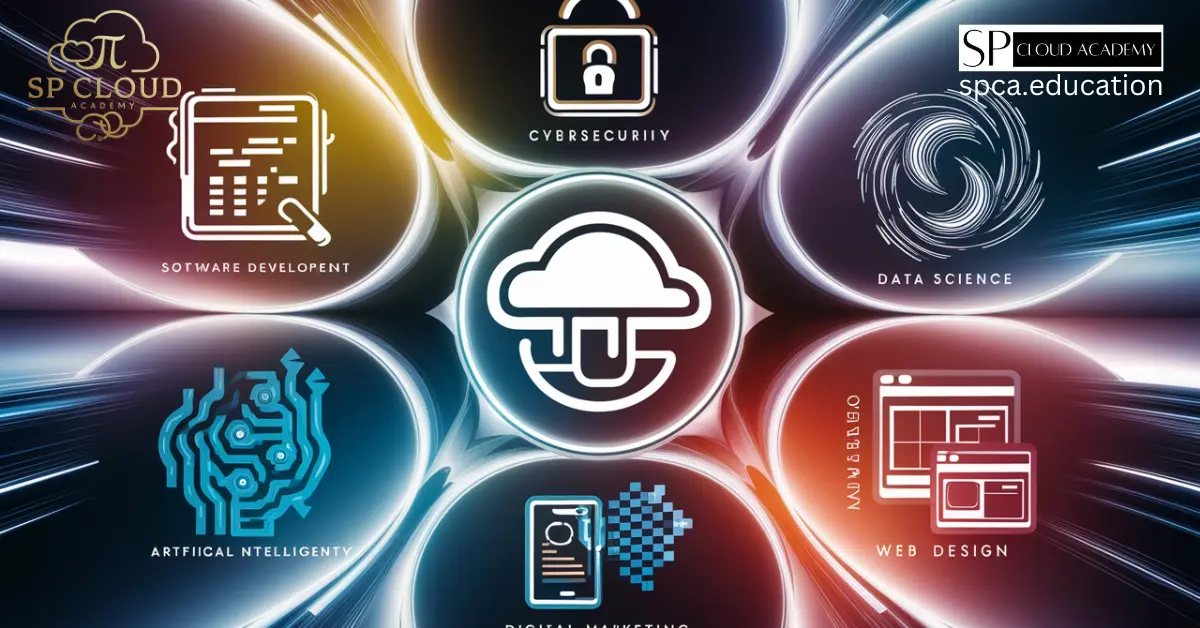Software engineering is the branch of computer science that deals with the design, development, testing, and maintenance of software applications. Software engineers apply engineering principles and knowledge of programming languages to build software solutions for end users. This article is a Software Engineering Career guide.
Here are some of the key responsibilities of a software engineer:
- Design software: Software engineers work with stakeholders to understand the requirements for a new software system. They then use their knowledge of software engineering principles to design a system that meets those requirements.
- Develop software: Software engineers use programming languages to implement the design of the software system. They also write unit tests to ensure that the software is working as expected.
- Test software: Software engineers test the software to ensure that it is free of defects and meets the requirements of users. They use a variety of testing techniques, such as unit testing, integration testing, and system testing.
- Deploy software: Software engineers deploy the software to production environments so that users can use it. They also monitor the software to ensure that it is performing as expected.
- Maintain software: Software engineers maintain the software by fixing defects, adding new features, and updating the software to keep it up-to-date with the latest technologies.
Software engineering fields
Software engineering is a diverse field with various specialized areas and domains. Here are some of the key software engineering fields, each with its own set of skills and focuses:
- Web Development: Creating websites and web applications using technologies like HTML, CSS, JavaScript, and various web frameworks (e.g., React, Angular, Vue.js). Web developers work on user interfaces, functionality, and interactivity of web applications.
- Mobile App Development: Designing and developing applications for mobile devices, such as smartphones and tablets. This field includes Android app development (using Java or Kotlin) and iOS app development (using Swift).
- Backend Development: Building the server-side logic, databases, and APIs that power applications. Backend developers work with languages like Python, Ruby, Java, or Node.js, and frameworks like Django, Ruby on Rails, or Express.js.
- Frontend Development: Focusing on the visual aspects and user experience of applications. Frontend developers use HTML, CSS, and JavaScript to create responsive and user-friendly interfaces.
- Full-Stack Development: Full-stack developers have expertise in both frontend and backend development. They can work on all aspects of an application, from its user interface to its server-side logic and databases.
- Data Science and Analytics: Utilizing data to extract insights and make informed decisions. Data scientists work with programming languages like Python or R and use tools for data analysis, machine learning, and data visualization.
- Machine Learning and AI: Developing algorithms and models that enable computers to learn from and make predictions or decisions based on data. Machine learning engineers work on tasks like natural language processing, computer vision, and recommendation systems.
- DevOps and Cloud Computing: Focusing on software deployment, automation, and infrastructure management. DevOps engineers work with tools like Docker, Kubernetes, and cloud platforms (AWS, Azure, GCP) to ensure efficient development and deployment processes.
- Game Development: Creating video games for various platforms. Game developers work on aspects like game design, graphics, physics, audio, and user interactions.
- Embedded Systems: Developing software for hardware devices and systems, such as IoT devices, robotics, and automotive software.
- Security Engineering: Ensuring the security of software systems and applications by identifying vulnerabilities, implementing security measures, and conducting penetration testing.
- Quality Assurance and Testing: Focusing on ensuring the quality and reliability of software through testing, automated testing frameworks, and continuous integration.
- UI/UX Design: Designing user interfaces and user experiences to enhance the usability and visual appeal of software applications.
- Augmented Reality (AR) and Virtual Reality (VR): Working on applications that merge digital and physical worlds, creating immersive experiences.
- Blockchain Development: Developing decentralized applications (DApps) and smart contracts using blockchain technology.
- Automation and Robotics: Designing software that controls and manages robotic systems and automation processes in various industries.
- Bioinformatics: Combining biology, computer science, and data analysis to process and interpret biological data, often used in genomics and medical research.
These are just a few examples of the diverse software engineering fields. As technology continues to evolve, new specialties may emerge, and existing fields may further specialize. Choosing a field that aligns with your interests and strengths can lead to a fulfilling and successful software engineering career.
Demands
The demand for software engineers is high due to the following factors:
- The rapid advancement of technology: New technologies are constantly emerging, and software engineers are needed to develop and maintain software that uses these technologies.
- The increasing complexity of software: Software systems are becoming increasingly complex, and software engineers are needed to design and develop software that can handle this complexity.
- The growing need for innovation: Businesses are constantly looking for new ways to improve their products and services, and software engineers are needed to develop innovative software solutions.
- The globalized economy: Software is developed and used all over the world, and software engineers are needed to work on projects that span multiple countries and cultures.
The demand for software engineers is expected to continue to grow in the coming years. The U.S. Bureau of Labor Statistics projects that employment of software developers, quality assurance analysts, and testers will grow 22 percent from 2021 to 2031, much faster than the average for all occupations.
Skills for software engineering
Software engineering requires a diverse set of technical and non-technical skills to succeed in the field. Here’s a comprehensive list of skills that are valuable for software engineers:
Technical Skills:
- Programming Languages: Proficiency in one or more programming languages, such as Python, Java, C++, JavaScript, Ruby, or C#. The choice of language often depends on the project’s requirements.
- Software Development: Solid understanding of software development principles, including object-oriented programming (OOP), modular design, and version control (e.g., Git).
- Data Structures and Algorithms: Knowledge of fundamental data structures (arrays, linked lists, trees, graphs, etc.) and algorithms (sorting, searching, dynamic programming, etc.) for efficient problem-solving.
- Database Management: Familiarity with relational databases (e.g., SQL) and NoSQL databases (e.g., MongoDB), including data modeling, querying, and optimization.
- Web Development: Front-end (HTML, CSS, JavaScript) and back-end (server-side scripting, databases, API integration) web development skills, along with experience using web frameworks (e.g., React, Angular, Vue, Node.js, Django, Flask).
- Mobile App Development: Knowledge of mobile app development platforms (e.g., Android Studio, Xcode), programming languages (Java, Kotlin, Swift), and mobile app design principles.
- Cloud Computing: Understanding of cloud platforms (e.g., AWS, Azure, GCP) and experience with cloud services like computing, storage, and networking.
- DevOps and CI/CD: Familiarity with DevOps practices, continuous integration/continuous deployment (CI/CD) pipelines, containerization (Docker), and orchestration (Kubernetes).
- Testing and Quality Assurance: Proficiency in writing unit tests, integration tests, and automated testing scripts to ensure software reliability and quality.
- Security: Knowledge of secure coding practices, vulnerability assessment, and cybersecurity measures to protect software from threats.
- Version Control: Experience using version control systems like Git for collaborative development and codebase management.
- Data Science and Machine Learning: Understanding of data analysis, data preprocessing, machine learning algorithms, and libraries (e.g., NumPy, Pandas, scikit-learn, TensorFlow).
- UI/UX Design: Familiarity with user interface (UI) and user experience (UX) design principles to create intuitive and user-friendly software interfaces.
Non-Technical Skills:
- Problem-Solving: Ability to analyze complex problems, break them down into manageable components, and develop effective solutions.
- Critical Thinking: Capacity to evaluate different approaches and make informed decisions based on logical reasoning and evidence.
- Communication: Strong written and verbal communication skills for conveying technical information to both technical and non-technical stakeholders.
- Teamwork: Collaboration skills to work effectively with cross-functional teams, including designers, product managers, and other engineers.
- Time Management: Efficiently manage tasks, prioritize work, and meet project deadlines.
- Adaptability: Willingness to learn and adapt to new technologies, tools, and methodologies as the industry evolves.
- Attention to Detail: Thoroughness in code development, testing, and debugging to ensure software accuracy and reliability.
- Creativity: Ability to think creatively and find innovative solutions to challenges.
- Leadership: Skills to lead projects, mentor junior team members, and contribute to technical discussions.
- Continuous Learning: Commitment to ongoing self-improvement and staying up-to-date with industry trends.
Remember that the specific skills required can vary based on the type of software engineering role, the industry, and the organization. It’s important to continuously learn and adapt as technology and industry demands evolve.
Education and certifications
Education and certifications play a significant role in building a successful software engineering career. They provide you with the knowledge, skills, and credentials needed to stand out in the competitive job market. Here are some educational paths and certifications you can consider:
Education:
- Bachelor’s Degree in Computer Science or Software Engineering: A bachelor’s degree in computer science, software engineering, or a related field is a common educational path for aspiring software engineers. These programs provide a strong foundation in programming, algorithms, data structures, and software development principles.
- Master’s Degree: Pursuing a master’s degree in computer science, software engineering, or a specialized area like artificial intelligence or data science can provide you with advanced knowledge and research opportunities. This can be beneficial for roles that require deeper technical expertise or leadership positions.
- Online Courses and Bootcamps: Online platforms like Coursera, edX, Udacity, and Codecademy offer a wide range of courses and bootcamps that cover various programming languages, frameworks, and development skills. These can be a more flexible and cost-effective option to learn specific skills.
- Self-Study: Many successful software engineers are self-taught. There is a wealth of free and paid resources available online, including tutorials, documentation, and coding exercises. Building personal projects and contributing to open-source projects can showcase your skills.
Certifications:
Here are some software engineering certifications along with brief descriptions and official links where you can find more information:
AWS Certified Developer – Associate
Description: Validates your skills in designing, developing, and maintaining applications on Amazon Web Services (AWS) cloud platforms.
Official Link: AWS Certified Developer – Associate
Microsoft Certified: Azure Developer Associate
Description: Demonstrates your ability to design, build, test, and maintain applications using Microsoft Azure cloud services.
Official Link: Microsoft Certified: Azure Developer Associate
Google Cloud Professional Cloud Developer
Description: Validates your expertise in designing, building, and deploying applications on Google Cloud Platform (GCP).
Official Link: Google Cloud Professional Cloud Developer
Certified Kubernetes Application Developer (CKAD)
Description: Certifies your skills in designing, building, configuring, and deploying applications using Kubernetes.
Official Link: Certified Kubernetes Application Developer (CKAD)
Certified DevOps Engineer (Various Providers)
Description: Various organizations, including AWS and Microsoft, offer DevOps certifications that cover automation, CI/CD pipelines, and infrastructure as code.
Official Links:
Certified ScrumMaster (CSM)
Description: Demonstrates your understanding of Agile and Scrum methodologies for efficient project management.
Official Link: Certified ScrumMaster (CSM)
Certified Information Systems Security Professional (CISSP)
Description: Validates your skills in information security, risk management, and cybersecurity program management.
Official Link: Certified Information Systems Security Professional (CISSP)
Certified Associate in Project Management (CAPM)
Description: Demonstrates your project management skills and understanding of project management processes.
Official Link: Certified Associate in Project Management (CAPM)
Oracle Certified Professional (OCP) – Java
Description: Oracle offers certifications for Java developers, including Java SE and Java EE certifications.
Official Link: Oracle Certified Professional (OCP) – Java
Cisco Certified Network Associate (CCNA)
Description: Validates your skills in networking and prepares you for roles involving network configuration and troubleshooting.
Official Link: Cisco Certified Network Associate (CCNA)
It’s recommended to visit the official certification websites for the most up-to-date information, exam details, prerequisites, and study resources.
Jobs roles in software engineering
Jobs in software engineering encompass a wide range of roles and responsibilities within the field of software development and technology. Here are some common job roles in software engineering:
- Software Developer/Engineer: Develops, tests, and maintains software applications and systems. This role involves coding, debugging, and collaborating with cross-functional teams to deliver high-quality software.
- Front-End Developer: Specializes in designing and implementing user interfaces and experiences. Front-end developers work with web technologies like HTML, CSS, and JavaScript to create visually appealing and responsive user interfaces.
- Back-End Developer: Focuses on server-side development and handles the logic and data processing behind the scenes. Back-end developers work with databases, server-side languages, and frameworks to build the functionality of applications.
- Full-Stack Developer: Proficient in both front-end and back-end development, full-stack developers can work on all aspects of a software application. They have a comprehensive understanding of both user interfaces and server-side logic.
- Mobile App Developer: Specializes in creating applications for mobile devices such as smartphones and tablets. Mobile app developers work with platforms like iOS (using Swift or Objective-C) and Android (using Java or Kotlin).
- DevOps Engineer: Focuses on automating and streamlining the processes of software development, testing, deployment, and infrastructure management. DevOps engineers bridge the gap between development and IT operations.
- Quality Assurance (QA) Engineer: Ensures the quality and reliability of software by designing and implementing testing processes. QA engineers perform manual and automated testing to identify and fix defects.
- Software Architect: Designs the high-level structure and components of software applications. Software architects make decisions about technology stacks, system architecture, and design patterns.
- Data Scientist: Analyzes large sets of data to extract insights and make data-driven decisions. Data scientists use programming languages like Python and tools for data analysis and machine learning.
- Machine Learning Engineer: Develops machine learning models and algorithms to enable software applications to learn from and make predictions or decisions based on data.
- Security Engineer: Focuses on identifying vulnerabilities and implementing security measures to protect software applications and systems from cyber threats and attacks.
- Embedded Systems Engineer: Designs and develops software that runs on embedded systems, which are specialized computing devices integrated into larger systems or products.
- Game Developer: Creates video games by designing and coding gameplay mechanics, graphics, audio, and other aspects of the gaming experience.
- Cloud Engineer: Specializes in building, deploying, and managing applications and services on cloud platforms like AWS, Azure, or Google Cloud.
- UI/UX Designer: Collaborates with developers to design user interfaces and experiences that are intuitive, visually appealing, and user-friendly.
These are just a few examples of the diverse roles available in software engineering. The software industry continues to evolve, creating new opportunities and specializations as technology advances.
Career Planning and Development
Career planning and development in software engineering is a dynamic process that involves setting goals, acquiring skills, gaining experience, and continuously adapting to the evolving landscape of technology. Here’s a step-by-step guide to help you plan and develop your career in software engineering:
- Self-Assessment and Goal Setting:
- Reflect on your strengths, interests, and values.
- Identify your short-term and long-term career goals.
- Consider the type of projects, industries, and technologies that align with your interests.
- Skill Development:
- Continuously learn and stay updated on new programming languages, frameworks, tools, and methodologies.
- Take online courses, attend workshops, seminars, and earn certifications to enhance your skills.
- Develop both technical and soft skills, including communication, problem-solving, and teamwork.
- Education and Training:
- Pursue formal education, such as a bachelor’s or master’s degree in computer science, software engineering, or a related field.
- Participate in coding bootcamps, online courses, or workshops to acquire specialized skills quickly.
- Networking:
- Attend industry conferences, meetups, and events to connect with professionals in the software engineering field.
- Join online communities, forums, and social media groups to engage in discussions and share knowledge.
- Internships and Entry-Level Positions:
- Gain practical experience through internships, co-op programs, or entry-level positions.
- Learn about the industry, work on real projects, and build a professional network.
- Building a Portfolio:
- Create a portfolio showcasing your projects, code samples, and contributions to open-source projects.
- Highlight your problem-solving abilities, creativity, and technical skills.
- Career Advancement:
- Seek out opportunities for career growth within your current company or consider transitioning to a new role.
- Take on leadership roles, mentor junior developers, and contribute to high-impact projects.
- Certifications:
- Obtain relevant certifications in areas such as cloud computing (AWS, Azure), agile methodologies (Scrum, Agile), or specific programming languages or frameworks.
- Specialization:
- Identify areas of specialization, such as web development, mobile app development, data science, machine learning, or cybersecurity.
- Develop expertise in your chosen specialization through focused learning and project work.
- Graduate Education (Optional):
- Consider pursuing a master’s or doctoral degree to deepen your knowledge and expertise in a specific area of software engineering.
- Continuous Learning:
- Stay curious and committed to lifelong learning to adapt to new technologies and trends in the field.
- Read books, research papers, blogs, and follow industry influencers to stay informed.
- Job Transitions and Mobility:
- Explore job opportunities at different companies or industries to broaden your experience.
- Consider remote work or freelance opportunities to expand your skill set and network.
- Mentorship:
- Seek guidance from experienced professionals who can provide insights, advice, and career direction.
- Personal Branding:
- Build a strong online presence through a professional website, LinkedIn profile, and relevant social media platforms.
Remember that career development is a personal journey, and it’s important to be adaptable and open to new opportunities. Continuously evaluate and adjust your career plan based on your evolving goals and the changing landscape of software engineering.
Learning Platforms
There are numerous online learning platforms that offer courses, tutorials, and resources for learning software engineering and related skills. Here are some popular platforms where you can enhance your software engineering knowledge:
- Udacity: Offers a variety of nanodegree programs focused on software development, web development, data science, machine learning, and more.
- Coursera: Provides courses from universities and institutions worldwide, covering a wide range of software engineering topics, including programming languages, algorithms, and software development methodologies.
- edX: Offers online courses from universities and institutions, covering software engineering, computer science, and related fields.
- Codecademy: Focuses on interactive coding lessons and projects, covering various programming languages and technologies.
- Pluralsight: Provides a vast library of courses on software development, including programming languages, web development, cloud computing, and more.
- LinkedIn Learning: Offers a wide range of video tutorials and courses on software engineering, programming languages, and software development practices.
- Treehouse: Specializes in web development and offers courses on front-end and back-end technologies, as well as other programming languages and tools.
- Khan Academy: Offers free computer science courses and tutorials, including introductory programming and algorithms.
- FreeCodeCamp: Focuses on web development and offers a comprehensive curriculum covering HTML, CSS, JavaScript, and more.
- Coursera: Provides courses from universities and institutions worldwide, covering a wide range of software engineering topics, including programming languages, algorithms, and software development methodologies.
- edX: Offers online courses from universities and institutions, covering software engineering, computer science, and related fields.
- Codecademy: Focuses on interactive coding lessons and projects, covering various programming languages and technologies.
- Pluralsight: Provides a vast library of courses on software development, including programming languages, web development, cloud computing, and more.
- LinkedIn Learning: Offers a wide range of video tutorials and courses on software engineering, programming languages, and software development practices.
- Treehouse: Specializes in web development and offers courses on front-end and back-end technologies, as well as other programming languages and tools.
- Khan Academy: Offers free computer science courses and tutorials, including introductory programming and algorithms.
- FreeCodeCamp: Focuses on web development and offers a comprehensive curriculum covering HTML, CSS, JavaScript, and more.
- MIT OpenCourseWare: Provides free access to course materials from MIT’s computer science and software engineering courses.
- Stanford Online: Offers online courses in software engineering and computer science topics, including machine learning, artificial intelligence, and algorithms.
- The Odin Project: Focuses on web development and offers a free curriculum covering HTML, CSS, JavaScript, and other related technologies.
- HackerRank: Offers coding challenges, competitions, and tutorials to improve coding skills and algorithms.
- LeetCode: Specializes in coding interview preparation and provides a wide range of coding challenges to practice algorithms and data structures.
- W3Schools: Provides tutorials and references for web development technologies, including HTML, CSS, JavaScript, and more.
- GeeksforGeeks: Offers tutorials, articles, and coding practice in various computer science and software engineering topics.
- Mozilla Developer Network (MDN): Provides comprehensive documentation and tutorials for web technologies, including HTML, CSS, and JavaScript.
These platforms offer a variety of learning formats, from video courses and interactive coding challenges to written tutorials and projects. Choose the platform(s) that align with your learning style and goals to enhance your software engineering skills and knowledge.
Several technology vendors and companies offer their own learning platforms and resources to help individuals learn software engineering skills and technologies that are specific to their products or services. Here are some vendor-specific software engineering learning platforms:
- Microsoft Learn: Microsoft’s platform provides free, interactive learning resources for software development, cloud computing (Azure), and other Microsoft technologies.
- Google Cloud Training: Offers courses, labs, and certifications focused on Google Cloud Platform (GCP) services and technologies.
- AWS Training and Certification: Amazon Web Services (AWS) offers training and certifications to learn about cloud computing and AWS services.
- IBM Skills Gateway: Provides courses and learning paths for various IBM technologies, including AI, cloud, and data science.
- Salesforce Trailhead: Salesforce’s learning platform offers modules and trails to learn about Salesforce technologies and applications.
- Oracle University: Offers training and certifications for Oracle technologies, including databases, cloud, and enterprise applications.
- Unity Learn: Unity’s platform provides tutorials and courses for game development using the Unity engine.
- Red Hat Training: Offers training and certifications for Red Hat technologies, including Linux and open-source solutions.
- VMware Learning: Provides training and certifications for VMware virtualization and cloud computing technologies.
- SAP Learning Hub: Offers training and resources for SAP software and enterprise applications.
- Cisco Learning Network: Provides training and resources for Cisco networking and certification programs.
- Adobe Learn: Offers tutorials and courses for Adobe creative software, including Photoshop, Illustrator, and Premiere Pro.
- MongoDB University: Offers free courses and resources to learn about MongoDB, a popular NoSQL database.
- Tableau Learning: Provides training and resources for data visualization and analytics using Tableau.
- GitHub Learning Lab: Offers interactive courses and projects to learn about Git, GitHub, and version control.
These vendor-specific learning platforms are designed to help individuals gain expertise in technologies and services offered by these companies. They often include a mix of tutorials, hands-on labs, documentation, and certifications to enhance your skills and knowledge in software engineering areas that align with the vendor’s products or services.
Internship and freelancing/remote jobs
Internships and freelancing/remote jobs are excellent opportunities for gaining practical experience and building a strong foundation in software engineering. They allow you to apply your skills, work on real-world projects, and collaborate with professionals in the field. Here’s how you can pursue both paths:
Internship in Software Engineering:
- Research Opportunities: Research companies, startups, and organizations that offer software engineering internships. Look for positions that align with your skills and interests.
- University Career Services: Many universities have career services departments that can help you find internship opportunities. They may host job fairs, offer resume workshops, and provide networking opportunities.
- Online Job Platforms: Websites like LinkedIn, Indeed, Glassdoor, and InternMatch list internship positions. Use search filters to find internships that match your criteria.
- Company Websites: Visit the career sections of company websites directly to explore available internship positions and application instructions.
- Networking: Attend tech meetups, conferences, and workshops to network with professionals in the industry. Personal connections can often lead to internship opportunities.
- Application Process: Prepare a well-crafted resume and cover letter tailored to each internship you apply for. Highlight relevant skills, projects, and experiences.
- Interview Preparation: Practice coding interviews and technical questions to excel in technical interviews. Be prepared to discuss your projects and problem-solving abilities.
Freelancing/Remote Jobs in Software Engineering:
- Build a Portfolio: Create a portfolio showcasing your projects, coding skills, and any relevant work experience. Having a strong online presence can attract clients.
- Freelance Platforms: Websites like Upwork, Freelancer, Toptal, and Fiverr connect freelancers with clients seeking software development services.
- Specialize: Identify your strengths and specialize in a specific area of software engineering (e.g., web development, mobile app development, data analysis) to attract clients with targeted needs.
- Networking: Attend online forums, communities, and social media groups related to freelancing and software development. Networking can help you connect with potential clients.
- Create Proposals: Write compelling project proposals that outline your skills, relevant experience, and how you can solve the client’s problem.
- Pricing: Determine competitive pricing based on your skills, experience, and the complexity of the project. Research the market rates for freelancers in your chosen field.
- Deliver Quality Work: Meeting deadlines and delivering high-quality work is crucial for building a positive reputation and obtaining repeat clients.
- Remote Job Platforms: Websites like Remote.co, We Work Remotely, and FlexJobs list remote job opportunities in software engineering.
- LinkedIn: Update your LinkedIn profile to highlight your skills and freelancing experience. Connect with potential clients and network in relevant groups.
Remember that both internships and freelancing opportunities provide valuable experiences that can enhance your software engineering career. Internships offer structured learning within a company, while freelancing allows you to gain independence and business skills while working on diverse projects. Choose the path that aligns with your goals and helps you grow as a software engineer.
FAQs
Here are some frequently asked questions (FAQs) about a career in software engineering:
- What is software engineering?
Software engineering is the discipline of designing, developing, testing, and maintaining software applications and systems. It involves applying engineering principles and practices to create reliable, efficient, and scalable software solutions. - What skills do I need to become a software engineer?
Essential skills include programming languages (e.g., Python, Java, JavaScript), problem-solving, algorithms, data structures, version control (e.g., Git), debugging, software architecture, and communication skills. - Do I need a degree to become a software engineer?
While a degree in computer science or a related field can provide a strong foundation, many successful software engineers have also gained skills through self-study, coding bootcamps, and online courses. - What is the role of a software engineer?
Software engineers design, develop, test, and maintain software applications. They collaborate with cross-functional teams, gather requirements, write code, troubleshoot issues, and ensure software meets user needs and quality standards. - What types of software engineering roles are there?
Roles include front-end developer, back-end developer, full-stack developer, mobile app developer, software architect, DevOps engineer, quality assurance engineer, data scientist, and more. - How do I prepare for coding interviews?
Practice coding challenges on platforms like LeetCode and HackerRank. Study algorithms, data structures, and problem-solving techniques. Mock interviews and solving sample problems help improve your performance. - What are software engineering internships?
Internships are temporary positions where you work at a company to gain real-world experience in software development. They provide exposure to industry practices, team collaboration, and practical application of skills. - What is the difference between freelance and full-time software engineering work?
Freelance work involves working independently on projects for multiple clients, often remotely. Full-time work involves being a permanent employee at a company, working on projects within a team or department. - What are the benefits of open-source contributions for a software engineer?
Contributing to open-source projects allows you to collaborate with experienced developers, showcase your skills, and give back to the community. It can also help you learn best practices and gain recognition. - How do I stay up-to-date with the latest technologies in software engineering?
Follow tech news, blogs, and social media accounts of industry experts. Take online courses, attend conferences, and participate in webinars to learn about emerging technologies and trends. - Can software engineers work remotely?
Yes, many software engineers have the flexibility to work remotely, especially in roles that involve coding and development. Remote work allows for a better work-life balance and eliminates geographical limitations. - What is the future outlook for software engineering careers?
Software engineering continues to be a rapidly evolving field with strong job prospects. As technology advances and new industries adopt software solutions, the demand for skilled software engineers is expected to grow.
Remember that software engineering is a dynamic field with diverse opportunities. Your career path can be shaped by your interests, skills, and willingness to adapt to new technologies and challenges.
Related Articles
Career Guide in Information Technology – SP Cloud Academy (spca.education)
-

From Clicks to Connections: Smart Ways to Combine Online and Offline Job Hunting
-

How to Turn Your Passion for Graphics into a Freelance Career
-

Technical Post vs. General Post in Job Sectors: A Detailed Explanation with Examples, Responsibilities, and FAQs
-

The Future of IT Support and Administration Careers: Trends You Can’t Ignore
-

The Power of Professional Communities: Why Joining One Can Transform Your Life
-

Top 7 Gig Work Opportunities in the ICT Sector You Can’t Ignore
